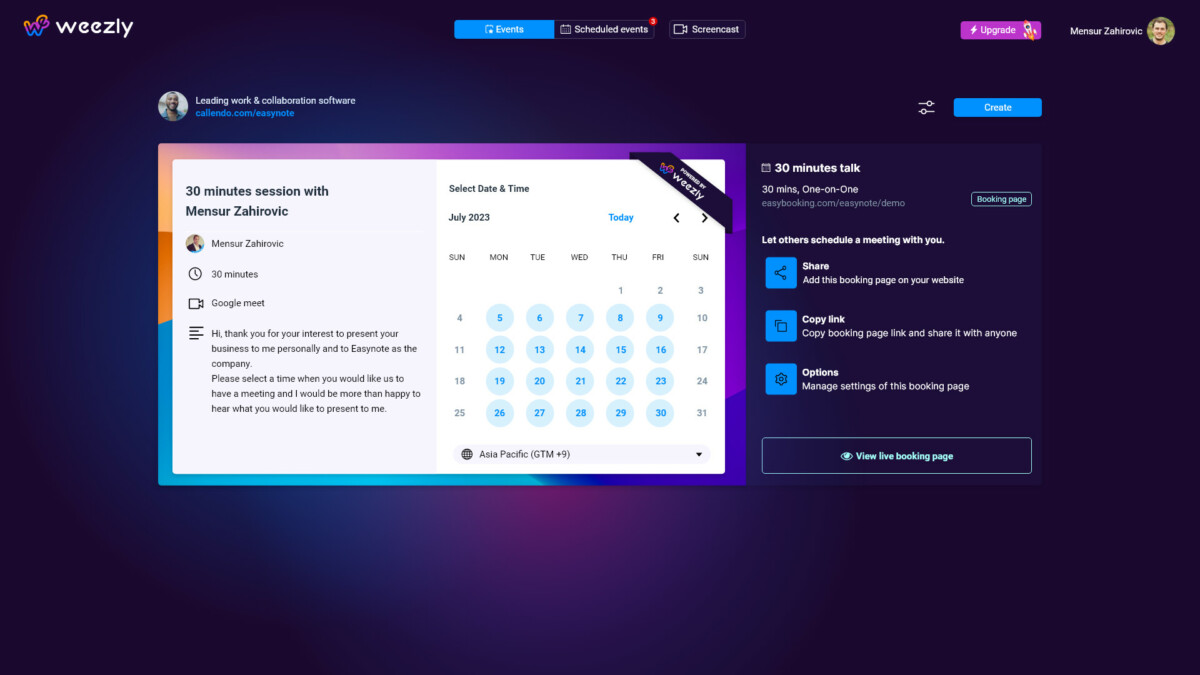Recruiting top talent for your organization can be a challenging task. With the competitive job market and the need to find the perfect fit for your team, efficient scheduling plays a crucial role in the success of your recruitment process. In this blog post, we’ll explore various strategies to boost your recruiting scheduling process, ensuring that you can attract and secure the best candidates for your company.

Why Efficient Recruiting Scheduling Matters
Before delving into the strategies, let’s understand why efficient recruiting scheduling is so important. A well-organized scheduling process can:
- Enhance Candidate Experience: A smooth and efficient scheduling process can leave a positive impression on candidates, showing that your company values their time and professionalism.
- Speed Up Time-to-Hire: Streamlining scheduling reduces delays in the recruitment process, allowing you to secure top talent before your competitors do.
- Minimize Administrative Burden: Efficient scheduling frees up HR and hiring managers from tedious administrative tasks, allowing them to focus on candidate evaluation and engagement.
- Improve Employer Branding: A well-organized recruiting process reflects positively on your company’s image, making it more attractive to potential hires.
Now, let’s dive into the strategies to boost your recruiting scheduling process:
Strategies For Recruiting Scheduling Process
1. Utilize Scheduling Software
Investing in scheduling software can revolutionize your recruitment process. Tools like Calendly or Doodle enable candidates to choose interview slots that work for them while syncing with your team’s availability. Here’s how to make the most of scheduling software:
- Customize Availability: Set up your interviewers’ availability in the software, ensuring that candidates can only select from open slots.
- Automated Reminders: Use automated email reminders to ensure candidates don’t miss their interviews.
- Integration: Integrate scheduling tools with your applicant tracking system (ATS) for a seamless process.
2. Implement a Centralized Calendar
Maintaining a centralized calendar for all interviews and recruitment activities can help in better coordination. Google Calendar or Outlook Calendar can be great options. Benefits include:
- Avoiding Double-Booking: Prevent scheduling conflicts by having a single source of truth for interview slots.
- Visibility: Make sure all relevant team members can see and access the interview schedule.
- Easy Rescheduling: Quickly reschedule interviews when necessary, without confusion.
3. Prioritize Time Zones
In today’s global workforce, candidates may be in different time zones. Being considerate of this fact can improve the scheduling experience:
- Time Zone Friendly: Clearly mention the time zone for the scheduled interview, and consider offering flexible interview slots to accommodate candidates in various regions.
- International Candidates: If you’re recruiting internationally, use tools like World Time Buddy to find suitable interview times.
4. Leverage AI-Powered Chatbots
Artificial intelligence (AI) chatbots can be invaluable in pre-screening candidates and setting up initial interviews. They can:
- Conduct Initial Screening: Use chatbots to ask pre-screening questions and assess candidates’ qualifications.
- Schedule Interviews: Chatbots can seamlessly schedule interviews based on candidate responses.
- 24/7 Availability: Provide round-the-clock assistance to candidates, even outside of regular working hours.
5. Streamline Communication
Effective communication is key to successful scheduling. Ensure that:
- Clear Instructions: Provide candidates with clear instructions on how to schedule interviews, including any required documents or information.
- Responsive Support: Offer a point of contact for candidates who may have scheduling difficulties or questions.
- Feedback Loop: Collect feedback from candidates on their scheduling experience to continually improve the process.
6. Batch Scheduling

Consider batch scheduling for initial interviews. This approach involves setting aside specific days or time blocks for interviews, which can improve efficiency:
- Reduced Context Switching: Interviewers can focus on conducting interviews during these dedicated time slots without constant interruptions.
- Streamlined Evaluation: You can compare candidates more easily when interviews are conducted within a close time frame.
Use software for scheduling such as Weezly.
7. Use Video Interviews
Video interviews are becoming increasingly popular, especially for remote positions. They offer several advantages:
- Wider Candidate Pool: Video interviews allow you to consider candidates from different geographic locations.
- Time Savings: Eliminate travel time and associated costs for both candidates and interviewers.
- Recording: You can record video interviews for later review or to share with other team members.

8. Provide Flexibility
Flexibility in scheduling can attract top talent. Consider these options:
- Evening and Weekend Interviews: Offer interviews during non-standard hours to accommodate candidates with busy daytime schedules.
- Multiple Interview Rounds: Provide flexibility in the number of interview rounds, allowing candidates to choose the most suitable schedule.
9. Train Interviewers
Ensure your interviewers are well-trained not only in evaluating candidates but also in the scheduling process:
- Communication Skills: Interviewers should effectively communicate with candidates regarding scheduling and expectations.
- Adherence to Schedule: Train interviewers to stick to the allotted interview time to maintain a consistent schedule.
10. Monitor and Optimize
Continuous improvement is essential. Regularly monitor your scheduling process and gather feedback from both candidates and interviewers:
- Analyze Metrics: Track key metrics like time-to-hire, interview dropout rates, and candidate feedback to identify areas for improvement.
- Iterate and Adapt: Be open to making changes based on the data you collect and the feedback you receive.
Conclusion
In conclusion, a well-structured and efficient recruiting scheduling process can significantly impact your ability to attract and hire top talent. By utilizing scheduling software, embracing AI-powered chatbots, and providing flexibility to candidates, you can create a seamless experience that leaves a positive impression on candidates and sets your organization up for success in the competitive world of recruiting. Remember to continually monitor and optimize your process to stay ahead of the curve and secure the best talent for your team.







